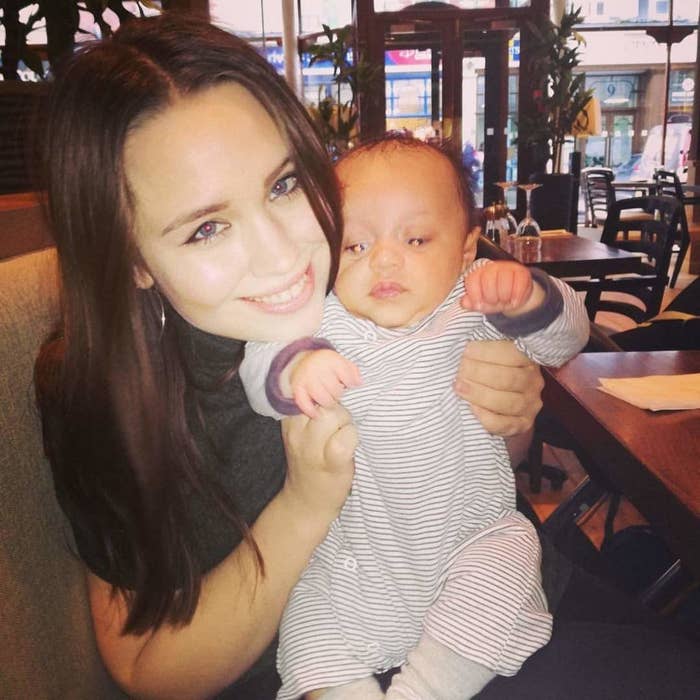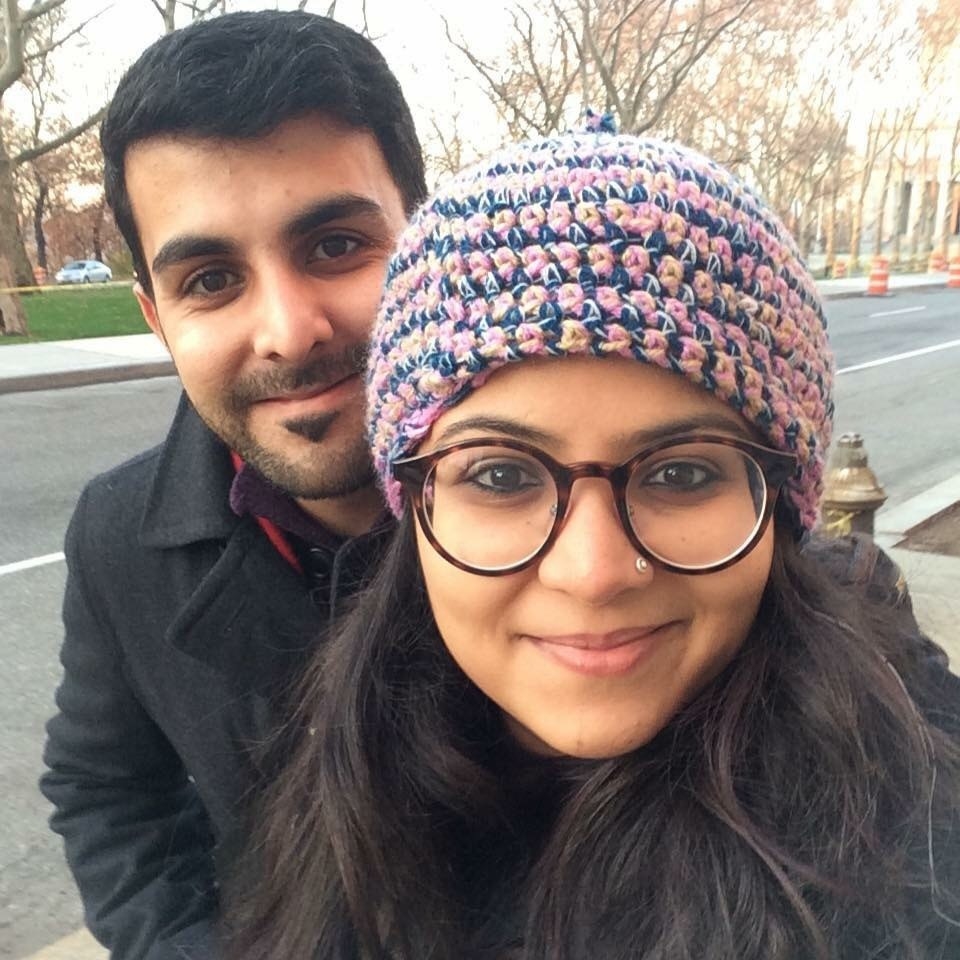
Laura Clarke’s fiancé Biniyam Tesfaye has never met their 4-month-old son Elijah. He has been stuck in Ethiopia, unable to get even a visitor’s visa for the birth. The internet is so bad where he lives in Addis Ababa that he has not even managed to have a video chat with his new family.
Clarke and Tesfaye met when they were both teaching at an international school in Addis Ababa. She fell pregnant and came back to live with her parents in Rugby, Warwickshire, thinking he would be able to follow. But after a failed attempt to secure him a visitor visa, she had to give birth without him present – and he still has not been able to visit.
The couple have been given some hope that their situation could be helped by Wednesday’s ruling from the Supreme Court, which found that it was unlawful for the government to fail to consider the rights of children when using earnings requirements to block the spousal visas of parents.
Theresa May introduced a change to spousal visa rules in 2012 when she was home secretary that meant British citizens must earn at least £18,600 a year to bring in a non-EU spouse. It has left an estimated 15,000 children without one parent.
The Home Office has now suspended applications from couples who do not meet the minimum income threshold while they consider changes to the policy in light of the ruling.
But most couples without children will remain in the same situation, as overall the court declared it legal for the government to keep non-EU spouses out of the UK if their British partner does not meet the minimum earnings.
That is why, despite the new hope for her family, Clarke, 28, is not happy about the judgment. “I feel let down by my country and angry," she told BuzzFeed News. "Everybody should have the right to have their spouse here, regardless of whether they have kids or not.”
But she added: “I do have some hope now in our case and I’ll do what it takes. Binyam needs to be here with his son.”
She continued: “I am happy that it has been recognised that children have a right to their parents here. At least I feel as if people like me have had a voice and not been forgotten about. But everybody has a right to fall in love with who they like. There shouldn’t be a price on it."
Being in Britain without Tesfaye has made life tough for Clarke. Recalling Elijah’s birth, she said: “It was horrible because I had to stay in hospital after a c-section and I could see other people with their partners helping them. It was so hard. Because the internet is so bad out there, I had to send videos of Elijah on a USB so he could feel connected to him.”
She is desperate for the rules to be changed quickly so Elijah can meet his dad. “My health visitor said that I shouldn’t take my son to Ethiopia until he’s 1, because he hasn’t had all his injections," she said. "As a mother I don’t want to put him in danger, but I also want him to meet his dad. Binyam is a very educated teacher and could bring a lot to this country if people looked beyond his nationality.”

Precious Mealia, 25, who is living in Birmingham with her 2-year-old son Marley while his dad Max Omar is stuck in Tanzania, is optimistic about the impact of the judgment on their lives.
“Generally the ruling is positive for our family in that the court found that the best interests of the child aren’t being taken into account," she said. "I’m not sure about celebrating just yet but it’s a step in the right direction for us. We’ll hold the celebrations for when he actually gets a visa.”
Mealia met Omar when she was on a study year in Tanzania in 2013. They dated for 10 months while she was studying there, and when she travelled back to the UK pregnant in 2014 she assumed he would be able to follow. But his visitor visas have been turned down and they can only see each other outside the UK.
Omar, 25, runs a travel business in Tanzania, but his earnings do not count for a spousal visa application and Mealia is still a student. She says that once the Home Office has a new policy in place they will look into getting married and starting a life together in Britain.

But Londoner Suzi Hall, who is currently living in Thailand with her husband Eddie Chemchaeng and their 18-month-old daughter, told BuzzFeed News she was sceptical that the ruling would end up helping their case. “I just don’t feel the Home Office makes decisions based on individual circumstances, it’s just a blanket rule for everybody.”
She added: “It’s good that finally we’re being represented and there might be a change, but I don’t have much faith in it. I think the Home Office will find a way around the judgment.”
Hall's husband was there when she gave birth at home in London, but when their daughter was 3 months old, her husband had to go back to Thailand because his visitors visa ran out. Four months later, suffering from depression, she decided to follow him rather than wait until she could earn enough to bring him to London.
“I didn’t choose to live in Thailand, I chose to be at home in London, but I couldn’t see a way to earn the salary required and be a mum without the support of my husband. It’s not a choice who you fall in love with; it’s so hard. I’m extremely isolated here and I’m homesick.”
The inflexibility of the income threshold was also questioned in today’s Supreme Court decision. The judges ruled that where the minimum income requirement is not met, further consideration should be given to alternative sources of income when considering whether a visa should be granted outside of the rules.

Satbir Singh, who has to chat with his wife Gitanjali on his iPad in London while she's in Delhi, because his self-employment earnings are not currently counted, believes the ruling improves their chances of living together in Britain.
Speaking shortly after it was announced, he said: “There’s good news for families with children and some leeway for cases like ours to get a different outcome, because they’ve ruled that the government will have to look into alternative sources of income. That would mean they could look at what I actually earn, unlike the way they do it now, where if I work for four people they only consider one contract. It could also mean they include my wife’s job or family income.”
He added: “I’m hopeful because that’s all you can be, but it’s such a vague judgment and there’s a bit too much wriggle room for the government. There’s still tens of thousands of people who won’t benefit from either consideration. If you’re a nurse, you still won’t be able to sponsor your spouse to live here.”
